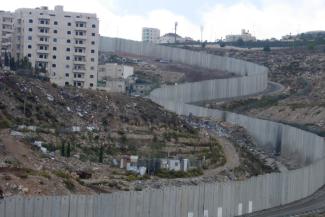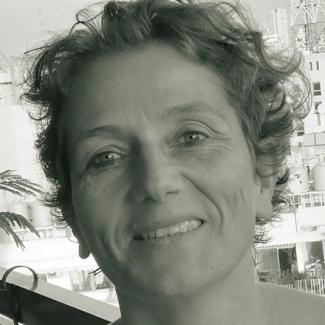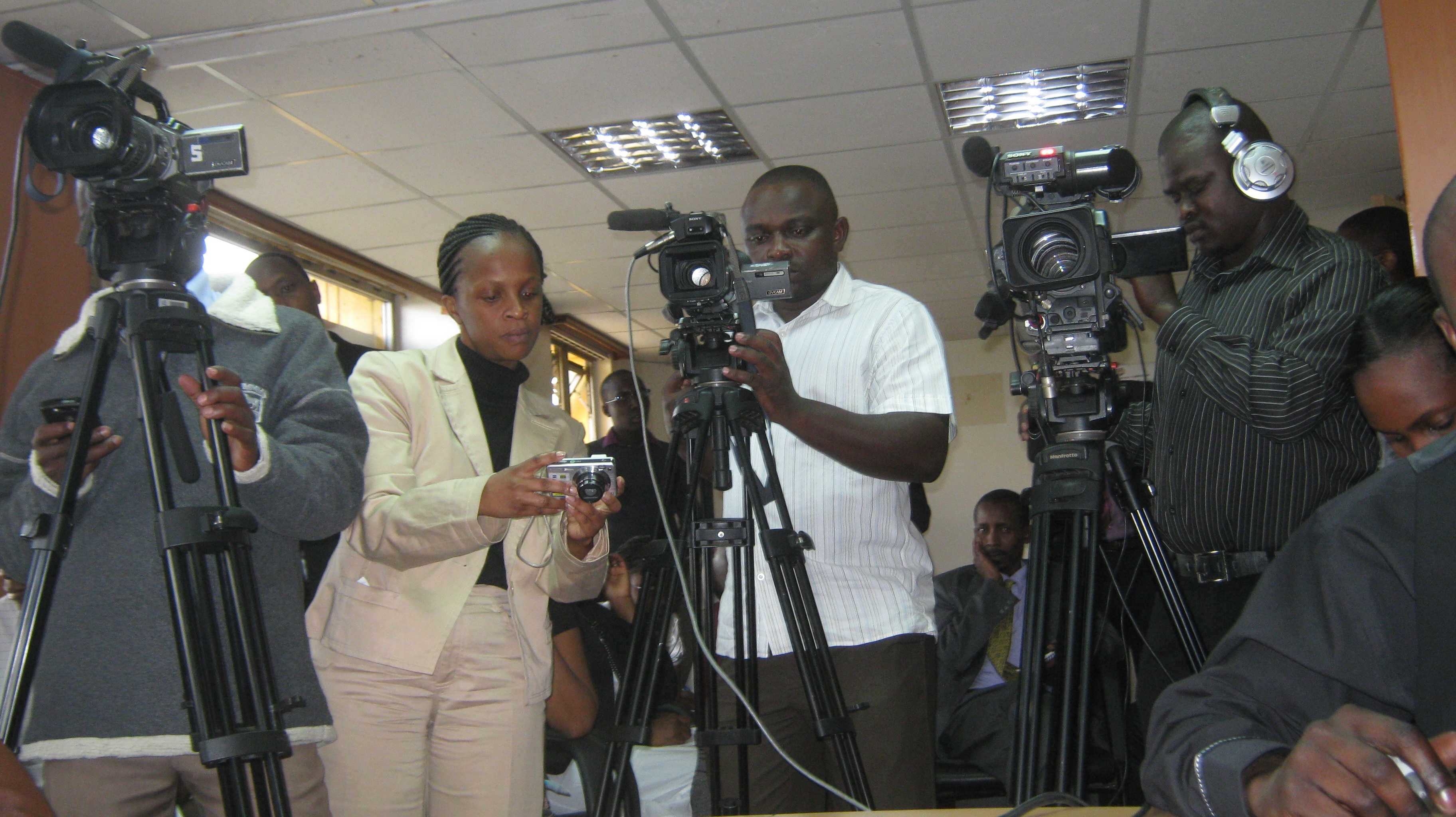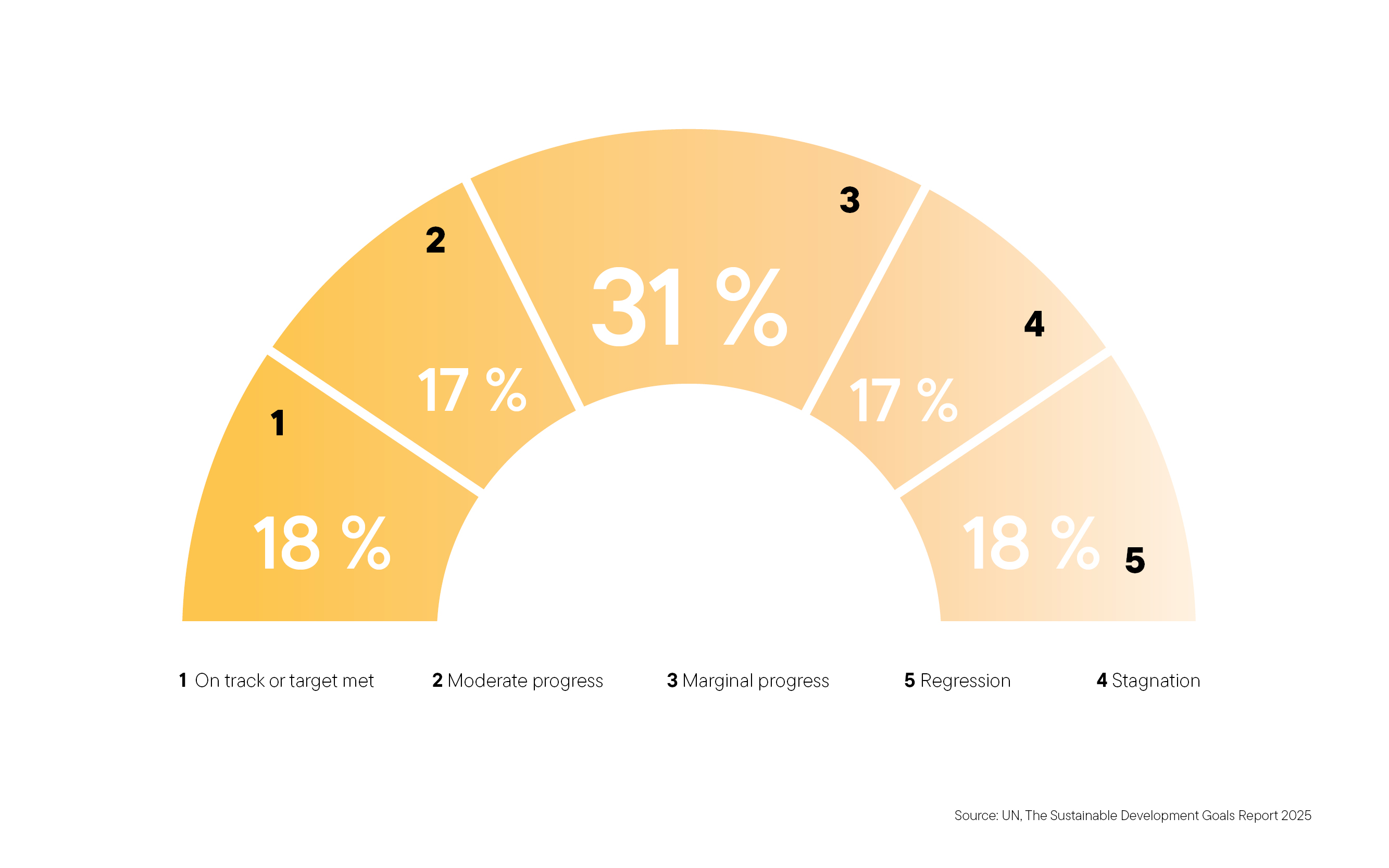Netizens
Blogging for change

Saed Karzoun from Ramallah has lots of ideas. His project called Blog Bus is quite popular. Young bloggers, citizen journalists or Facebook activists travel the country in a coach that has internet access. “We discuss beforehand what topics we will be discussing in any given place,” says Karzoun. “It should be something that matters in people’s lives and that the media have an impact on. We want to make things public.” The activists produce video clips, conduct interviews, take photographs, and write tweets and posts. Sharek Youth Forum and Taghyeer for Social Media, two Palestinian non-governmental agencies, contribute funding.
The Blog Bus’ first trip took the young netizens to the Jordan Valley. Normally, the media do not go there, says Karzoun, who is 29 years old. Some 50 web activists visited West Bank villages. The Palestinian territories are occupied by Israel. Ever more people have been chased from their fertile land in recent years. The UN Development Programme stated in a report in 2012 that the occupation of the Jordan Valley is undermining people’s livelihoods. They lack access to resources and land, according to the authors.
Muhammed Abu Allan participated in the research trip. Later, his blog BahrakYaYafa (literally: “Your Sea, Jaffa” ) included stories on life in the occupied territories. He and other activists also assess Palestinian leaders critically however. The authorities’ pledge to connect villages to the power grid remains unfulfilled. Support that was pledged for providing animal feed has never materialised either. Another time, the Blog Bus visited families of Palestinian inmates of Israeli jails in Tulkaremon in the West Bank. The bloggers afterwards posted interviews with prisoners’ relatives and told their stories.
The Blog Bus is not welcome everywhere. Karzoun wanted to take it to the public hospital in Ramallah to research difficulties in health care. However, the hospital management denied the bloggers access. “They were obviously afraid of us and did not want us to cover certain issues,” assumes Karzoun.
Social media are a new phenomenon on the West Bank. Karzoun started blogging in 2008, after graduating from university. At the time, blogging was not something many people did, in the Palestinian territories, but media usage has since changed considerably. According to a survey published by the Sharek Youth Forum in April 2014, more than a quarter of Palestinians aged 15 to 19 spend at least six hours a day with social media. About half of the youth population uses social media for three to six hours a day. Palestine has nearly 2 million Facebook accounts and about 37,000 twitter users. These numbers are huge in view of the West Bank’s population of 2 million and another 1.8 million people in the Gaza strip. Half of Palestine’s population is under 25 years.
Writing about the occupation
Social media are of growing relevance to the young generation – both in view of the occupation and the infighting of Palestinian political parties (see box below). The internet allows them to network with friends, stay in touch with people and access information fast. Moreover, platforms such as Facebook and Twitter enable young people to make themselves heard in public. They write and post what they want. Facebook is more useful than TV programmes, says Ahmad Al-Khatib, a teenager who lives near Jerusalem. One reason is that Facebook provides more detailed information on clashes of youths with the Israeli army. “I pass on such information immediately,” says Al-Khatib.
Palestinian bloggers tackle all sorts of topics, Karzoun states, but he adds: “It does not make sense to assess economic and social issues without taking into account the political situation.” Inflation matters, and so does the inner-Palestinian conflict that pits Hamas against Fatah. The poor services delivered by Palestinian municipal governments are another blogging topic. The occupation, however, is a grievance all bloggers basically agree about.
Bloggers and activists
Mohammed Abu Allan is a successful blogger. His blog has about 3000 visitors per day. He posts clippings from Israeli newspapers that he translates into Arabic. On top of that, he tells the stories of local occupation victims in Tubas, his home town, and its surroundings. He also covers daily grievances such as the difficulty of getting a fixed-line telephone or a road that is flooded due to government negligence.
“I blog because I want to express my views. I am convinced that no radio station, newspaper or TV channel is truly free here, no matter how objective they claim their reporting to be,” Abu Allen says. He states that he enjoys covering topics that are neglected by the mainstream media. He also wants to raise awareness for campaigns he finds convincing. One example is a public appeal to set free Omar Zahr Ed-Din Saad, an Israeli Druze who objected to doing military service on the West Bank.
Feda Ataya is another young Palestinian netizen. She has been writing the blog Farasha (“Butterfly”) since 2011. The motto was inspired by a line of Mahmoud Darwish, a prominent Palestinian poet: “The butterfly’s traces are invisible, the butterfly’s traces never fade.” Ataya says: “I blog when something makes me very angry, or when I feel touched.” For instance, she has written about the wall that Israel has erected in Abu Dis. This wall is about eight metres high, made of concrete and stands between the town and Jerusalem. The blog entry states that a group of graffiti have decided not to paint on it, which would only serve to make it aesthetically more pleasing. “The wall is fundamentally wrong. Why should we beautify it?”, Ataya quotes women she met in Abu Dis.
Her writing is dense, full of symbols, inviting readers to think. The language is colloquial Palestinian Arabic. “I am not a journalist,” says Ataya. “This style suits my personality. What matters is that people feel something when they read my posts.”
Growing number of internet activists
Ataya lives in Kafar Nima, a village west of Ramallah. There is an Israeli settlement right next to her village, and the wall is about 10 kilometres away.
The numbers of young Palestinians who are active on the internet is growing, but social media only mobilise small numbers to rally for political or social causes in the streets. They do not mobilise much international support either. Saleem Al-Habash, who teaches public relations and social media at Michigan State University, argues that Palestinians should not only post what grabs readers’ attention on the internet, but also publish content that “motivates people to become active”.
Iman Khawaja agrees with Al-Habash. She is 24 and has been running the photo and video blog Said Al-Kamera (“camera prey”) since 2009. She says that offline activism remains scant because many people lack the courage to take to the streets. Feda Ataya, in contrast, considers the gap between virtual and physical engagement normal: “People are like the five fingers of a hand – every one is different.” One person gets irritated and starts writing, she explains, and another starts screaming. One person starts destroying things, and another persons stays silent. And then there is someone who actually does something to change things. “All people are on Facebook and on the web. But only a few actually do something. That is normal, not only in Palestine,” says Ataya.
To tap the full potential of social media in Palestine, Saed Karzoun wants bloggers to network. His Blog Bus serves the purposes. It is where Iman Khawaja and Feda Ataya first met.
Karzoun also wants to make more young Palestinians familiar with social media, including in the context of specific campaigns. An initiative he recently started in cooperation with others is opposed to honour killings on the West Bank. The young activists want to put pressure on Mahmoud Abbas, the Palestinian president, to pass a law designed to punish murderers. Many bloggers have endorsed this initiative.
Mona Naggar is a journalist based in Beirut. mona.naggar@googlemail.com









